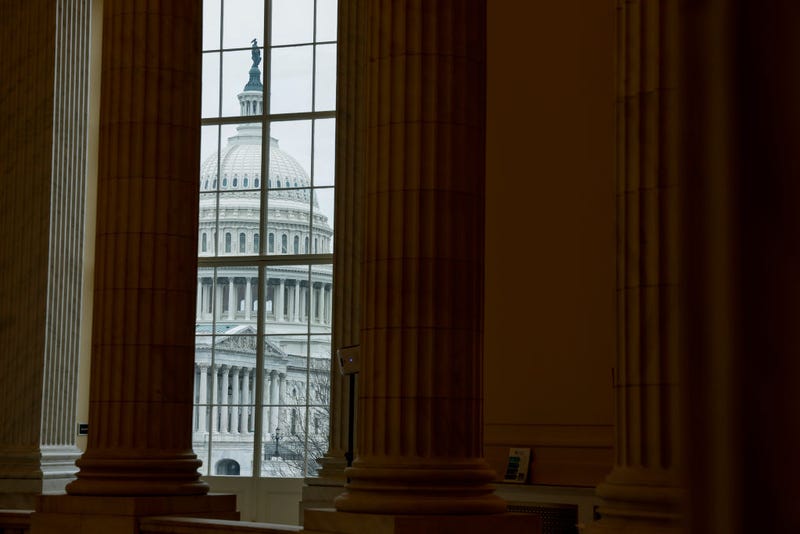
U.S. Treasury Secretary Janet Yellen said in a Thursday letter to lawmakers that the nation had hit its $31.381 trillion debt ceiling and that the department would begin to use “extraordinary measures.”
According to the Treasury Department, the debt limit is “the total amount of money that the United States government is authorized to borrow to meet its existing legal obligations, including Social Security and Medicare benefits, military salaries, interest on the national debt, tax refunds, and other payments.”
“First, I have determined that, by reason of the statutory debt limit, I will be unable to fully invest the portion of the Civil Service Retirement and Disability Fund (CSRDF) not immediately required to pay beneficiaries,” said Yellen.
She added that a “debt issuance suspension period” would begin Thursday and last through June 5.
“My predecessors have declared debt issuance suspension periods under similar circumstances,” Yellen explained. “With these determinations, the Treasury Department will suspend additional investments of amounts credited to, and redeem a portion of the investments held by, the CSRDF, as expressly authorized by law.”
Additionally, Yellen said that since the Postal Accountability and Enhancement Act of 2006 “provides that investments in the Postal Service Retiree Health Benefits Fund (PSRHBF) shall be made in the same manner as investments for the CSRDF,” the Treasury will suspend additional investments of amounts credited to the PSRHBF.
“By law, the CSRDF and the PSRHBF will be made whole once the debt limit is increased or suspended. Federal retirees and employees will be unaffected by these actions,” she said.
“It can be a good thing to have everyone get to this point,” in order to force Republicans and Democrats to negotiate on government spending cuts, Kathleen Day, author and professor at the Johns Hopkins Carey Business School, told KCBS Radio Thursday.
However, she said “this is different, because there is a group, in the House – very radical Republicans who are really serious about holding this hostage.”
“Congress must address the debt limit without conditions,” White House Principal Deputy Press Secretary Olivia Dalton told reporters Thursday. “Our posture on this hasn’t changed. There will be no negotiations of the debt ceiling.”
Dalton noted that Congress addressed the same issue with bipartisan support three times under current President Joe Biden’s predecessor, Donald Trump. Speaker of the House Kevin McCarthy (R-Calif) voted to lift the debt ceiling three times under Trump with no spending cuts, she added.
“There’s no reason that this position should change,” Dalton said.
Furthermore, she cited a Moody’s analysis that indicated that “6 million jobs — as many as 6 million jobs could be on the line if we default on our debt,” along with other serious economic impacts.
According to Day, the “big picture” view of the debt ceiling situation is that, if the U.S. defaults, it could lead to increases in taxpayer costs and interest rates “for everything from buying a car,” to buying toothpaste. It could also irreversibly ruin the nation’s reputation for paying its debt, she said.
“As I stated in my January 13 letter, the period of time that extraordinary measures may last is subject to considerable uncertainty, including the challenges of forecasting the payments and receipts of the U.S.
Government months into the future,” said Yellen in her letter. “I respectfully urge Congress to act promptly to protect the full faith and credit of the United States.”


